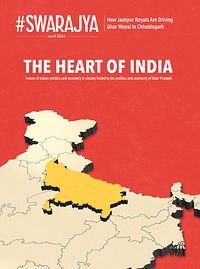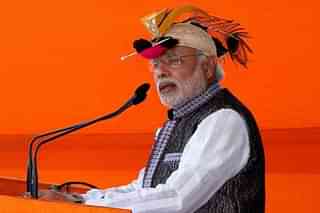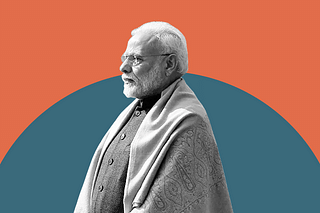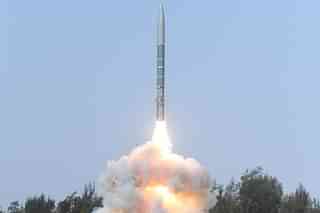Culture
'Jivanmukta': 3 Figures Of History Who Were Hindu In Practice
Sudha Srinivasan
Aug 02, 2015, 09:49 PM | Updated Feb 11, 2016, 10:00 AM IST
Save & read from anywhere!
Bookmark stories for easy access on any device or the Swarajya app.
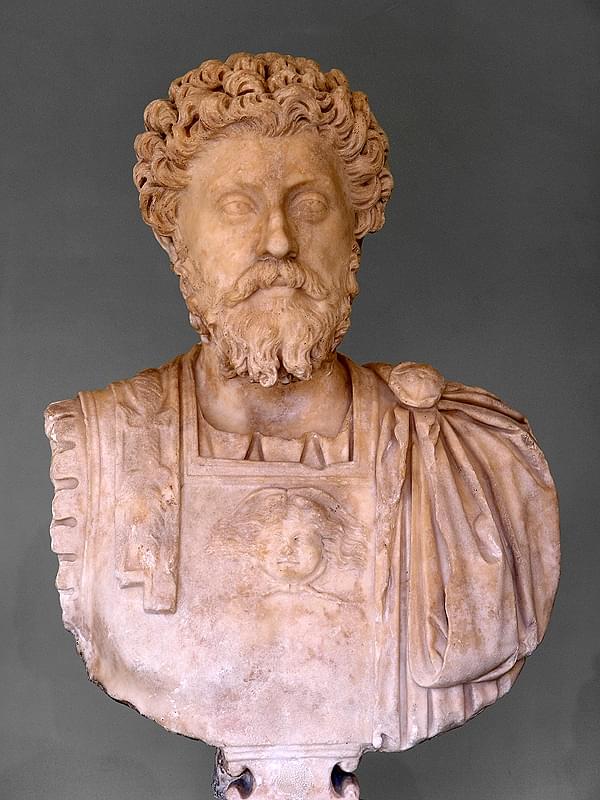
. . . if not by faith.
The definition of Hinduism that I choose is the perfect end state achieved by mankind finding God and goodness within themselves, in following a religion of their choice – or no religion whatsoever, if they so desire.
Former president of the Vishwa Hindu Parishad Ashok Singhal has been recently quoted in the media as saying “that the entire country (India) will be Hindu by 2020 and the entire world will be Hindu by 2030.” I do not know what he meant by that statement.
Like you, I can only guess, because everything we have heard about the politics of Mr Singhal, and his colleague Mr Praveen Togadia from the Indian mainstream media points to a rather limiting definition of the term ‘Hindu’ and an equally intimidating stance on India as a ‘Hindu Rashtra’. I do not speak for Mr Singhal, or the VHP, for I am affiliated to neither. However, this non-event splashed across the news got me thinking about the statement itself, and I set out to envision this possibility.
Any picture of a Hindu world in the distant future (2030 is sadly too close, even for my thought experiment, for we live in troubled times indeed) first required me to find role models from history who walked the path described by Vedic philosophers and achieved the final goal of all Hindus – which is enlightenment.
In the Advaita texts, this milestone is becoming a Jivanamukta – or one who has gained and assimilated Self-knowledge, and thus is liberated with an inner sense of freedom while still living. Surely, becoming a Jivanamukta isn’t the forte of Indian Hindus. If Self-knowledge is a universal truth, then there had to be others who had arrived upon it through their experiments with it.
The first role model that came to my mind was Marcus Aurelius, the Roman emperor from the 2nd century CE. If you have read the Stoic tome Meditations, that compiles his deepest thoughts and beliefs, the one singular quote that might have sprung at you would be
“Look well into thyself; for there is a source of strength which will always spring up if thou wilt always look there.”
Marcus was a man of the world, a king to his people and a soldier who dealt with war, death and depravity every day of his life. Yet, when he stopped to ponder on the big questions on his brilliant mind, he arrived on the very same answers as the sages in Vedic times many centuries before him, or the peerless guru Sri Adi Sankara several centuries after him.
Where Marcus Aurelius says, “Look within. Within is the fountain of good, and it will ever bubble up, if thou wilt ever dig.”
Sankara reminds us “Tat Tvam Asi” – or “Thou art That (the all knowing Self – in its original, pure, primordial state – the Ultimate Reality that is the ground and origin of all phenomena)”.
This identification of God as the goodness within each of us is the foundation of the Advaita philosophy that all Hindus subscribe to. You might never have thought of Marcus Aurelius as Hindu, but I am pretty sure that if there were to be a theological debate involving him and the great Sankara, they would both be on the same side.
There is another great theological figure that both Marcus Aurelius and Sri Adi Sankara are in great agreement with is the second Hindu on my list. It is none other than Jesus Christ, whose teachings guide the followers of world’s largest religion, Christianity.
In the Gospel of Luke 17:21, Christ is asked by the Pharisees when the kingdom of God will come. He answers them calmly
“The kingdom of God does not come with observation; nor will they say, ‘See here!’ or ‘See there!’ For indeed, the kingdom of God is within you.”
This is the basis of Christian mysticism, defined as the pursuit of the soul’s union with God. Much of Christianity today is a simplified adherence to Christ’s teachings on how to lead a moral life, but Christ’s own spiritual elevation is the outcome of his personal transformation by feeling God’s presence in Himself. Hindus may not agree with the idea of Jesus Christ being God’s Son, born of a Virgin Mother, and many will dispute consistencies between Christian and Vedic philosophy because the cultural differences are far too many. But few will disagree that Jesus was a Jivanamukta, who transcended the ‘maya’ of duality and became One with the Universal God or Atman.
My final role model for Hindus is closer home. This wonderful poet and enlightened soul came to earth as a poor Muslim weaver named Kabir. One of the most haunting melodies from my childhood, scripted by Kabir is ‘Moh ko kahaan dhoonde re bande’ – “Where do you search for me, for I am within you.”
The song rebukes the seeker for looking for God in places of worship, prayer, penance, etc. Why go through all that trouble, asks Kabir, when the Truth is that you will find me within you if you only have a little faith. Even as a child I could see the parallels between this song and the shlokas that I was taught to recite such as the Nirvana Shatakam negating God as being in mantras or teerthas but as being manifest in the self. So it was rather ironic when I looked up the Wikipedia page on Kabir,
I saw an entry that said “According to American Indologist Wendy Doniger, Kabir was born into a Muslim family and “all these stories (about his origins) attempt to drag Kabir back over the line from Muslim to Hindu.” I had to smile because this validates all criticism dished out on Ms. Doniger in the aftermath of her controversial book and reveals all too starkly just how limited her knowledge of India and Hinduism is. Ms. Doniger sees a ‘line’ across which ‘Hindus’ tried to drag Kabir over, and that line simply doesn’t exist because Hinduism is not a religion, in potential conflict with other religions. Hinduism is a philosophy that seeks to see divinity in all human beings, and that includes Kabir, Eckhart Tolle, Pastor Eddie from Macon, Georgia and much of mankind beyond those who self-identify as Hindus.
Of course, by the definition of Hinduism that I choose, this perfect end state is achieved by mankind finding God and goodness within themselves, in following a religion of their choice – or no religion whatsoever, if they so desire. I wonder if Mr Singhal will be on board with that.
Save & read from anywhere!
Bookmark stories for easy access on any device or the Swarajya app.
Introducing ElectionsHQ + 50 Ground Reports Project
The 2024 elections might seem easy to guess, but there are some important questions that shouldn't be missed.
Do freebies still sway voters? Do people prioritise infrastructure when voting? How will Punjab vote?
The answers to these questions provide great insights into where we, as a country, are headed in the years to come.
Swarajya is starting a project with an aim to do 50 solid ground stories and a smart commentary service on WhatsApp, a one-of-a-kind. We'd love your support during this election season.
Click below to contribute.
